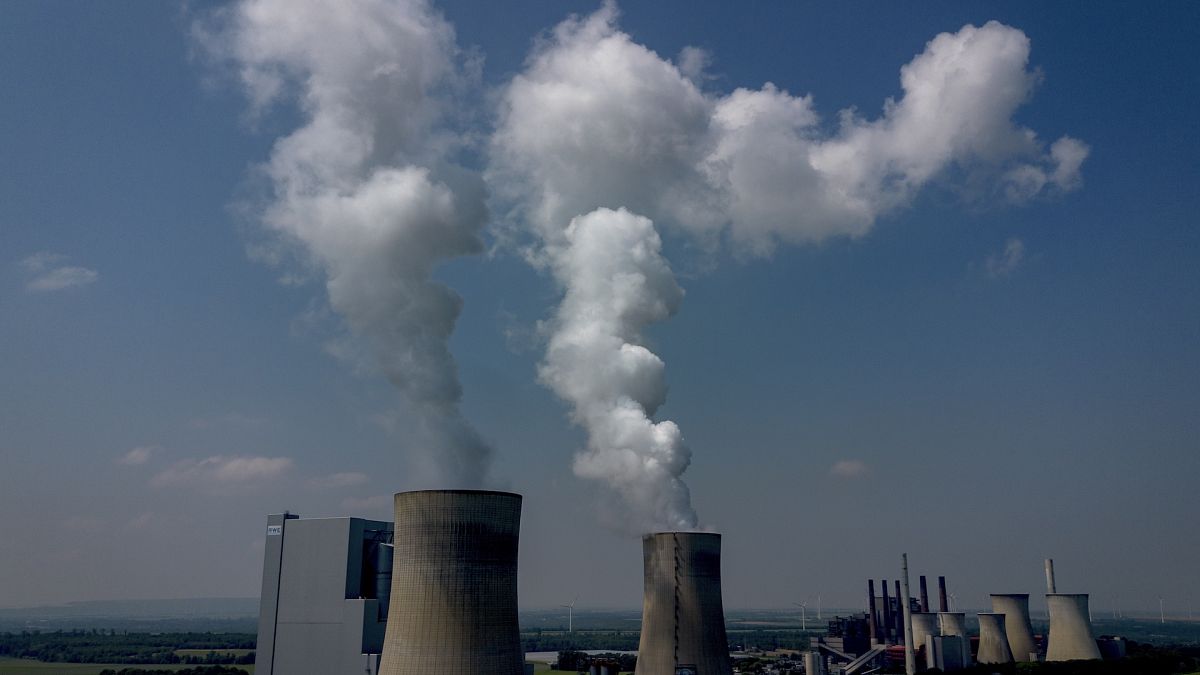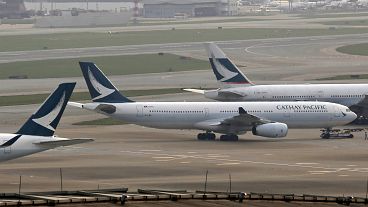Europe's manufacturing sector continues to struggle, with August's PMI indicating a deepening downturn. Germany and France lead the decline, while rising costs pose additional challenges.
The crisis engulfing Europe's manufacturing sector appears to be far from over, with the light at the end of the tunnel growing ever dimmer.
August brought yet another wave of bad news, with a fresh contraction in private sector activity, as revealed by S&P Global's Purchasing Managers' Index (PMI) survey.
While the final reading for August saw a minor upward revision from 45.6 to 45.8, it still remained below the crucial 50.0 mark, signalling a persistent downturn. The index has hovered in negative territory since July 2022, reflecting the structural challenges faced by the eurozone's manufacturing sector.
New order inflows, a key indicator of future production, fell at their sharpest rate so far in 2024. As demand dried up, companies were forced to slash input purchasing, reduce staff levels, and cut back on inventories. Adding to the gloom, business confidence dipped to a five-month low, highlighting the uncertainty that continues to hang over the sector.
Germany and France lead the manufacturing contraction
Among the nations covered by the surveys, Germany and France - the euro area's two largest economies - exerted the greatest drag on overall factory performance in August, with manufacturing conditions worsening in both countries. Greece, Spain, and Ireland were the only countries to register growth, although the pace of improvement in Greece and Spain slowed.
The slump in total sales across the eurozone was the most severe this year, matching the average decline seen over the past 28 months. New export business also took a hit, with the rate of decline reaching its steepest level in eight months - a clear sign that global demand for European goods is faltering.
As a result, factories across the eurozone have been shedding jobs at a worrying pace, with employment levels falling for the 15th consecutive month.
Rising input costs: Rising concerns for the ECB?
Adding to the sector's woes, eurozone manufacturers have reported rising input costs for the third month in a row. Although the pace of inflation has slowed slightly, it remains close to an 18-month high, driven by factors such as rising energy prices and supply chain disruptions.
Cyrus de la Rubia, chief economist at Hamburg Commercial Bank, captured the prevailing sentiment, noting: "Things are going downhill, and fast. The manufacturing sector has been stuck in a rut, with business conditions worsening at the same solid pace for three straight months, pushing the recession to a gruelling 26 months and counting."
The expert pointed out that both domestic and international new orders are slowing down further, diminishing any immediate hopes for a recovery.
"Adding insult to injury, input prices have been creeping up again since June," he added.
Monday's Market Performance: European Stocks Retreat
European markets opened on a negative note on Monday.
The broader Euro Stoxx 50 index slipped by 0.2% at 10:30 am CET, poised to break a four-day winning streak. France's CAC 40 and Germany's DAX were the major laggards among the region's indices, both down 0.3%. Italy's FTSE Mib edged lower by 0.2%, while Spain's IBEX 35 remained flat.
Leading the declines among Euro Stoxx 50 components were companies such as Kering, LVMH, and BASF, which fell 2.8%, 1.3%, and 1.1%, respectively.
The drop was particularly pronounced in cyclical sectors and among companies with significant exposure to Chinese demand, as economic uncertainty in China continued to weigh on global markets. The divergence between the Caixin and official manufacturing PMIs in China for August, with the latter shrinking for the fourth consecutive month, led to a 1.1% decline in the Shanghai index overnight and a 1.5% drop in Hong Kong's Hang Seng.
The US stock market was closed on Monday in observance of the Labour Day holiday.
In the forex market, the euro gained 0.2% against the dollar, reaching 1.1070. It climbed 0.3% against the Swiss franc and advanced 0.5% against the Japanese yen, while remaining flat vis-à-vis the pound sterling.















